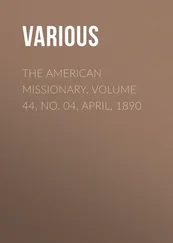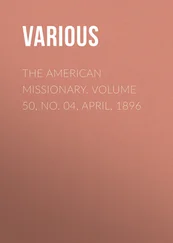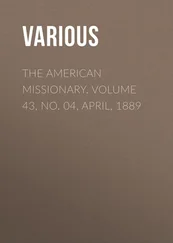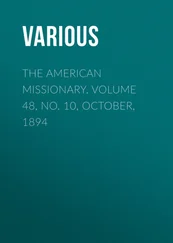Elizabeth Ellet - The Women of The American Revolution, Vol. 2
Здесь есть возможность читать онлайн «Elizabeth Ellet - The Women of The American Revolution, Vol. 2» — ознакомительный отрывок электронной книги совершенно бесплатно, а после прочтения отрывка купить полную версию. В некоторых случаях можно слушать аудио, скачать через торрент в формате fb2 и присутствует краткое содержание. Жанр: foreign_antique, foreign_prose, на английском языке. Описание произведения, (предисловие) а так же отзывы посетителей доступны на портале библиотеки ЛибКат.
- Название:The Women of The American Revolution, Vol. 2
- Автор:
- Жанр:
- Год:неизвестен
- ISBN:нет данных
- Рейтинг книги:5 / 5. Голосов: 1
-
Избранное:Добавить в избранное
- Отзывы:
-
Ваша оценка:
- 100
- 1
- 2
- 3
- 4
- 5
The Women of The American Revolution, Vol. 2: краткое содержание, описание и аннотация
Предлагаем к чтению аннотацию, описание, краткое содержание или предисловие (зависит от того, что написал сам автор книги «The Women of The American Revolution, Vol. 2»). Если вы не нашли необходимую информацию о книге — напишите в комментариях, мы постараемся отыскать её.
The Women of The American Revolution, Vol. 2 — читать онлайн ознакомительный отрывок
Ниже представлен текст книги, разбитый по страницам. Система сохранения места последней прочитанной страницы, позволяет с удобством читать онлайн бесплатно книгу «The Women of The American Revolution, Vol. 2», без необходимости каждый раз заново искать на чём Вы остановились. Поставьте закладку, и сможете в любой момент перейти на страницу, на которой закончили чтение.
Интервал:
Закладка:
An anecdote illustrative of the heroic spirit of the lady whose house was the Chief's abode on this occasion, will not be here misplaced. Her husband was at Saratoga attending to some private business, when General Washington, with his officers and troops, went forth to battle. Mrs. Berry and the wives of the officers who were with her, were busily occupied in preparing bandages and wrappings for the use of the army; every sheet and article of linen in the house having been torn up for that purpose. She was harassed with anxiety lest her husband should not return to assume his post before the departure of the troops. He did not arrive in time; and she had the mortification of seeing another appointed to the command of his men. Sometime after they were gone, she heard the welcome sound of his horse's feet. He rode up hastily, and stopped only long enough to change his wearied horse for another. As he galloped down the lane leading from the house, he heard his wife's voice calling, "Sidney, Sidney!" She was leaning from a window, her hand stretched towards him, as if eagerly soliciting his attention. He turned and rode within hearing; she wished but to give him her parting words. These were, "Remember, Sidney, to do your duty! I would rather hear that you were left a corpse on the field, than that you had played the part of a coward!"
Mrs. Wilson, a lady whose name is mentioned elsewhere in this book, has favored me with an account of Mrs. Washington's visit to her father's house at Union Farm, the last time she came to that part of New Jersey. She was escorted by Major Washington and ten dragoons. She remained a day and night at the house of Colonel Stewart, and spoke much with his daughter concerning housekeeping and her domestic affairs. Her conversation is described as agreeable, and her manners simple, easy, and dignified. Among other particulars, Mrs. Washington mentioned that she had a great deal of domestic cloth made in her house, and kept sixteen spinning wheels in constant operation. She showed Mrs. Wilson two dresses of cotton striped with silk, manufactured by her own domestics, and worn by herself; one weighing a pound and a half, the other rather less. The silk stripes in the fabric were made from the ravellings of brown silk stockings, and old crimson damask chair-covers. Her coachman, footman, and waiting-maid, were all habited in domestic cloth; though the coachman's cuffs and collars, being scarlet, must have been imported. In the practice of this economy and moderation, as in the simplicity of her dress, Mrs. Washington appeared desirous of affording an example to others in inferior station. As late as 1796, Mrs. Wilson, inquiring for pocket handkerchiefs at a celebrated fancy store in Philadelphia, was shown some pieces of lawn, of which Mrs. Washington had just purchased. The information was added, that she paid six shillings for handkerchiefs for her own use, but went as high as seven shillings for the General's.
The anniversary of the alliance with France was celebrated by an entertainment given in the camp near Middlebrook. 6 6 Remembrancer, Vol. VI.
On this festive occasion Mrs. Washington, Mrs. Greene and Mrs. Knox, and the wives of several officers were present; and a circle of brilliants, the least of which, says the gallant journalist, was more valuable than the stone which the king of Portugal received for his Brazilian possessions. The ladies and gentlemen from a large circuit around the camp, attended the celebration. It was opened by a discharge of cannon; and dinner was prepared in a building used for an academy. There was dancing in the evening, and a grand display of fire-works. The ball was opened by General Washington. As this was a festival given by men who had not enriched themselves by the war, the illuminations were on a cheap scale, being entirely of their own manufacture; the seats were adorned with no armorial blazonry, but were the work of native, and rather unskillful artisans. "Instead of knights of different orders, such as pageants like the Mischianza could boast, there were but hardy soldiers; happy, however, in the consciousness that they had contributed to bring about the auspicious event they had met to celebrate."
Among the lively sallies of the belles of this entertainment, one is recorded, that caused no inconsiderable amusement. A young lady, when asked if the roaring of the British lion in his late speech had not somewhat depressed the spirit of the dance – replied: "No, it should rather enliven it; for I have heard that such animals always increase their howlings when frightened."
For Mrs. Washington a heavy cloud of sorrow hung over the conclusion of the glorious campaign of 1781. Her only child was seized with a fever while attending to his duties during the siege of Yorktown. He lived to behold the surrender of the British army, and expired in the arms of his mother, mourned for by Washington as a son. The Marquis de Chastellux visiting Mount Vernon not long after this sad event, says: "I had the pleasure of passing a day or two with Mrs. Washington, at the General's house in Virginia, where she appeared to me one of the best women in the world, and beloved by all about her. She has no family by the General, but was surrounded by her grandchildren and Mrs. Custis, her son's widow. The family were then in mourning for Mr. Custis, whose premature death was a subject of public and private regret."
After the close of 1783, General Washington had leisure for the superintendence of improvements in the building and grounds at Mount Vernon. This old mansion was always crowded with visitors.
Social and rural pleasures winged the hours, and past dangers were pleasantly talked over. A letter never before published, of Mr. N. Webster, affords a passing glimpse of this period.
"When I was travelling to the south in the year 1785, I called on General Washington at Mount Vernon. At dinner the last course of dishes was a species of pancakes, which were handed round to each guest, accompanied with a bowl of sugar, and another of molasses for seasoning them, that each one might suit himself. When the dish came to me, I pushed by me the bowl of molasses, observing to the gentlemen present that I had enough of that in my own country. The General burst out with a loud laugh, a thing very unusual with him; 'Ah,' said he, 'there is nothing in that story about your eating molasses in New England!' There was a gentleman from Maryland at the table, and the General immediately told a story, stating that during the Revolution, a hogshead of molasses was stove in at Westchester by the oversetting of a wagon; a body of Maryland troops being near, the soldiers ran hastily and saved all they could by filling their hats or caps with molasses.
"Near the close of the Revolutionary war, I think in 1782, I was at West Point, when the birth of a Dauphin in France was celebrated by the American troops at that place. The troops were arranged in a line along the hills on the west of the camp, on the point, and on the mountains on the east side of the Hudson. When the order was given to fire, there was a stream of firing all around the camp, rapidly passing from one end of the line to the other; while the roar of cannon reverberated from the hills, resounded among the mountains, and thousands of human voices made the atmosphere ring with a song prepared for the occasion. 'A Dauphin is born!' This was a splendid exhibition, closed with a handsome repast under a long arcade or bower formed with branches of trees. I have never seen any account of this celebration in print."
While the victorious general was thus merged in "the illustrious farmer of Mount Vernon," Mrs. Washington performed the duties of a Virginia housewife, which in those days were not merely nominal. She gave directions, it is said, in every department, so that, without bustle or confusion, the most splendid dinner appeared as if there had been no effort in the preparation. She presided at her abundant table with ease and elegance, and was indeed most truly great in her appropriate sphere of home. Much of her time was occupied in the care of the children of her lost son.
Читать дальшеИнтервал:
Закладка:
Похожие книги на «The Women of The American Revolution, Vol. 2»
Представляем Вашему вниманию похожие книги на «The Women of The American Revolution, Vol. 2» списком для выбора. Мы отобрали схожую по названию и смыслу литературу в надежде предоставить читателям больше вариантов отыскать новые, интересные, ещё непрочитанные произведения.
Обсуждение, отзывы о книге «The Women of The American Revolution, Vol. 2» и просто собственные мнения читателей. Оставьте ваши комментарии, напишите, что Вы думаете о произведении, его смысле или главных героях. Укажите что конкретно понравилось, а что нет, и почему Вы так считаете.












